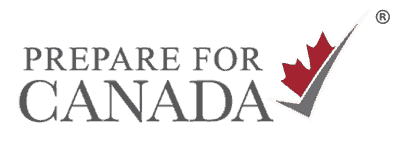
There are many exciting careers in the construction industry right across Canada. And available jobs will continue to increase with many current workers retiring in the years to come. So if you’re looking to make a career change, there are great possibilities, even if don’t have a construction background.
Linda Ryan is the Provincial Manager (Apprenticeship Services) with BCCA. When it comes to looking for a career, Ryan provides tips on how to successfully make your career change to the Canadian construction industry. BCCA-Integrating Newcomers, is a government funded, Canada-wide, pre-arrival career coaching service for high skilled construction professionals immigrating to Canada (*BCCA-IN). The BCCA-IN team helps newcomers plan for, and achieve, employment success, no matter what city or province they are moving to.
Prepare for Canada: Can you tell us more about the shortage of workers in the construction industry? What types of professions are needed?
Linda Ryan:
Advertisement:
With an 80,000 shortfall predicted in workforce numbers over the next decade due to retirements and modest industry growth, it’s fair to say Canada’s construction industry is actively hiring. Like any industry, construction needs tradespeople and specialist professionals such as engineers, architects, estimators, etc. As well, the industry requires strategic professionals for functions such as:
- Finance
- Health and Safety.
Prepare for Canada: The employee shortfall is great news for job seekers with a construction background. But, what advice do you have for newcomers who want to make a career change? In other words, how can newcomers actually transition their non-construction skills and experience?

Ryan offered these tips to make a career change to the construction industry.
Six Insightful Career Change Tips
Tip 1: Commit to the Career Change Journey
Transitioning your career to a new industry is possible as long as you have a clear plan and are prepared to take lots of small, progressive steps to get there. Accepting that your career transition is a journey, not a destination, is key. It will prepare you for the action and accountability you must assume to make a successful career change.
Tip 2: Know Your Career Change Goal
Answer this question: What’s my goal in moving into the construction industry?
Advertisement:
In other words, what will it give you that you don’t currently have? The more honest you are about what and why the more focused you can be about the kind of roles and companies that will suit you. Answering this question will help you confirm what you’re prepared to do to get started because you will have to take a step back in the short term to build your reputation in a new industry.
Tip 3: Review Your Resume and Your Life Experiences
This is where people make a big mistake. Recruiters will ‘pigeonhole’ you when they read your resume and only consider you for roles that match your experience and industries. So, your old resume won’t cut it. You can overcome this barrier by investing time to look back on your life, hobbies, family influences, volunteer endeavours, and professional experience. Then rewrite a resume and cover letter that shows:
i. An exposure to and interest in construction
II. Key skills and past role achievements that will transfer well into your new target industry.
Related Posts:
Crafting Your Job Search Action Plan to Work in Canada
LinkedIn Profile | Essential Tips & Advice for Newcomers
Canadian Style Resume | Is it Necessary?
Welder Jobs and Salary in Cities in Canada
3 Ways to Get Canadian Work Experience
Achieve Your Goals in Life by Creating Your Reality
Construction Jobs in Canada | What Newcomers Must Know
Working in Canada | A Guide to Land Your Dream Job!
Tip 4: Tailor Your Resume
Start job hunting for roles you’re a realistic fit for in the construction industry. This may mean considering more junior roles. Although you may have transferable skills, employers know that you will have to learn the industry to add 100% of your value, and that takes time. So, know your value but be humble about where you will start your career.
Spend less time applying for jobs and more time tailoring your resume for specific ‘obvious fit’ roles.
Tip 5: Start Connecting
Business in Canada relies on a strong network, and even more so in the construction industry. If you’re not prepared to invest time to network and connect with peers online and offline, then you’re not really committed to a career transition.
LinkedIn is a helpful tool to build a professional network and connect with peers. However, don’t connect to ask for a job. Instead, connect because you share a common:
- professional interest
- role background, or
- past experience.
Sometimes it’s as simple as sending a blank connection request on LinkedIn, other times, it’s about asking to connect because you’d value some ‘local industry insights’. Try different approaches. You’ve nothing to lose.
Tip 6: Check Out Your Local Construction Association
There are many construction associations across Canada. Most are formed as corporate, member-based, not-for-profit organizations. Their mission is to advocate for local construction stakeholders. The associations offer networking events, short in-person and online (inexpensive) courses and are great sources of local industry insights. To find your local Canadian Construction Association, start here: CCA Membership.
These are great tips for anyone looking to make a career change and enter the Canadian construction industry. And BCCA-IN can provide the support and guidance you need.
Learn More about BCCA-IN
*The BCCA-Integrating Newcomers program is a free, pre-arrival, Canada-wide service, focused on helping high-skilled newcomers explore and build successful construction careers. Services include one-on-one career guidance, tailored resume, cover letter, LinkedIn advice, and an in-depth skills and education assessment to help newcomers focus on the best career, credentials and connections activities. The Integrating Newcomers team not only has multi-industry experience but are also immigrants who have built successful careers in Canada.

Corinna Frattini is the content marketing strategist at Prepare for Canada. She contributes articles to help newcomers achieve their goals in key areas related to living, working, and settling in Canada. With an extensive background in human resources and leadership development, her articles focus on what Canadian employers seek and how newcomers can continue their careers in Canada.

